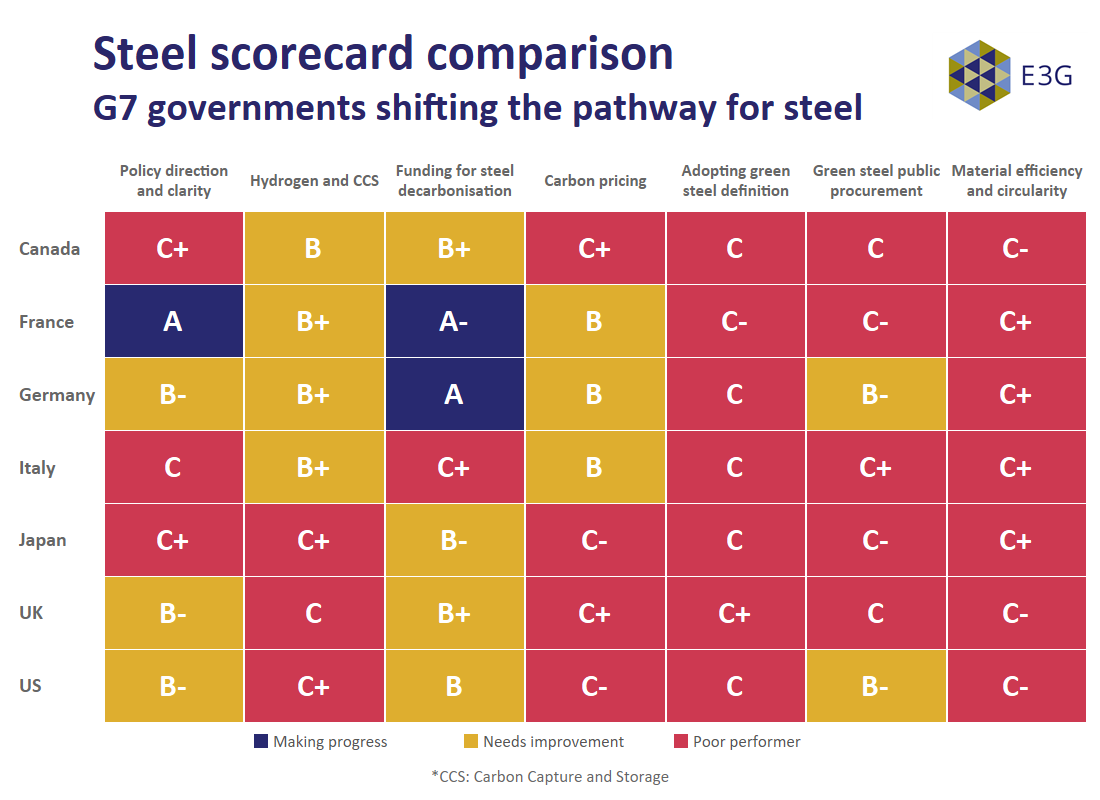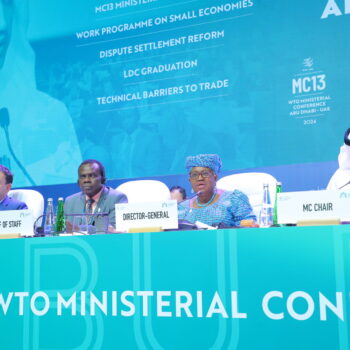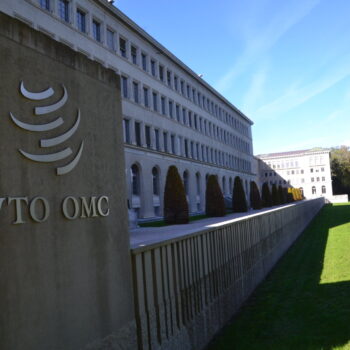- New analysis shows early signs of progress towards decarbonising steel in some G7 countries, especially France and Germany.
- Corporate emission reduction targets across G7 countries are currently taking us to a global average temperature increase of 2.7 °C. The need for government policy is evident.
- This new methodology to assess G7 policies targeting steel decarbonisation allows progress to be tracked over time based on seven key policy levers.
G7 Steel Policy Scorecard
Steel is one of the most central yet dirtiest building blocks of modern society. G7 countries have the ability and the collective responsibility to initiate a shift towards steel decarbonisation. E3G has developed a methodology to keep track of G7 country policies for steel decarbonisation, assessing progress over time, based on seven key policy levers.
The G7 heavy industry is just starting to move in the right direction. Germany and France are among the most ambitious early movers. But a lot more needs to be done to shift the pathway to a Paris aligned 1.5°C future. The briefing, produced by E3G, features a set of overall recommendations and key messages per each country.
The authors say that G7 governments need clear and binding emission reduction targets, setting steel-specific goals and phase-out commitments – such as no new unabated coal-based steel plants after a certain year. They need to steer hydrogen policy towards green hydrogen for steel, while maintaining a steady flow of funding to complement commitments made by the industry itself.
For individual recommendations on steel decarbonisation for the US, UK, Germany, France, Italy, Canada and Japan, visit G7 Steel Policy Scorecard – shifting the pathway for steel – E3G.
Quotes
Katinka Wågsæther, Senior Policy Advisor, Steel Decarbonisation at E3G said:
“Our G7 steel policy scorecard sends a clear message. G7 countries are starting to make movements on policy for steel decarbonisation. However, they still have a long way to go. We urge the G7 countries to each take the leading role that they have taken upon themselves – we will be tracking their progress!”
Domien Vangenechten, Policy Advisor, Industrial Transition at E3G said:
“Despite growing momentum on steel decarbonisation, the sector is not on track to meet the Paris Agreement goals. G7 countries, while not the largest producers, have recognised the leading role they can take in accelerating this transition. With this policy scorecard, E3G aims to track how they are starting to meet proclaimed ambition – clearly, much work remains to be done.”
Available for comment:
Katinka Wågsæther, Senior Policy Advisor, Steel decarbonisation, is available for commentary – please contact her directly: katinka.waagsaether@e3g.org
Domien Vangenechten, Policy Advisor, Industrial Transition is available for commentary – please contact him directly: domien.vangenechten@e3g.org
Mihnea Cătuți, Senior Associate, is available for commentary – please contact him directly: mihnea.catuti@e3g.org
Notes to Editors
- E3G is an independent climate change think tank with a global outlook. We work on the frontier of the climate landscape, tackling the barriers and advancing the solutions to a safe climate. Our goal is to translate climate politics, economics and policies into action. About – E3G
- Fur further enquiries, email press@e3g.org or phone +44 (0)7783 787 863.


